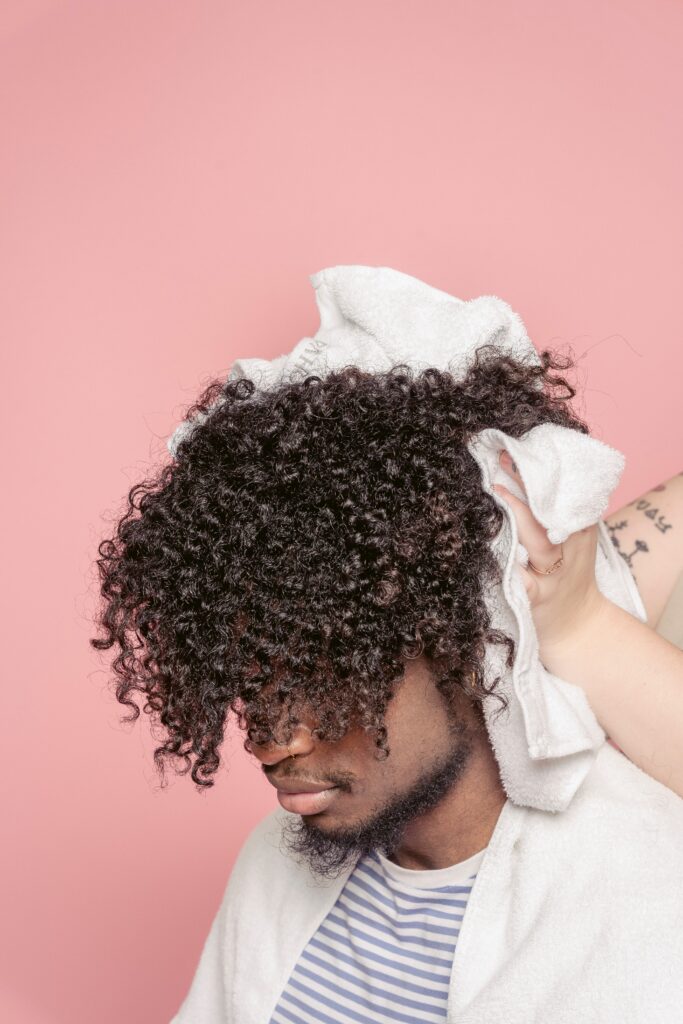Common Mistakes To Avoid When Using Hair Towels

Hair towels are a staple in many people’s beauty routines. They are designed to quickly absorb excess water from the hair while also protecting it from damage. However, despite their seemingly straightforward purpose, there are common mistakes that people often make when using hair towels that can actually harm their hair. In this blog, we will highlight some of these mistakes and provide tips on how to avoid them for healthy, luscious locks.
Mistake #1: Rubbing Your Hair Vigorously
After showering, it’s natural to want to get your hair dry as quickly as possible. However, rubbing your hair vigorously with a towel can cause unnecessary friction and lead to breakage and frizz. Your hair is most vulnerable when it’s wet, so being rough with it can damage the cuticles and weaken the strands.
Solution: Instead of rubbing your hair, try gently squeezing out excess water with a soft, absorbent hair towel. Avoid using a regular bath towel, as it can be too rough on your hair. Instead, invest in a microfiber or a cotton hair towel specifically designed for hair drying. These towels are softer and gentler on your hair, helping to prevent damage.
Mistake #2: Wrapping Your Hair Too Tight
Many people wrap their hair up in a towel turban-style to keep it out of the way while they go about their post-shower routine. However, wrapping your hair too tightly can cause stress on the hair shaft, leading to breakage and even hair loss over time. Additionally, a tightly wrapped towel can create tension on your scalp, which may cause discomfort and headaches.
Solution: When using a hair towel, be mindful of how tightly you’re wrapping it around your hair. Avoid twisting or pulling your hair too tightly, and opt for a loose and gentle wrap instead. If possible, choose a hair towel with a secure button or clasp that will help keep it in place without needing to wrap it tightly.
Mistake #3: Leaving Your Hair Wrapped for Too Long
It’s easy to get caught up in your post-shower routine and leave your hair wrapped up in a towel for an extended period of time. However, leaving your hair wrapped for too long can create a damp environment, which can lead to a breeding ground for bacteria and fungi. This can result in scalp issues such as dandruff and odor, and may even damage your hair.
Solution: Aim to keep your hair wrapped in a towel for no longer than 10-15 minutes. Once you’ve gently squeezed out the excess water, allow your hair to air dry or use a low-heat setting on your hairdryer to speed up the drying process. If you need to keep your hair up and out of the way, consider using a loose hair clip or a hairband instead of a towel.

Mistake #4: Using a Dirty Towel
Using a dirty towel to dry your hair can transfer dirt, oils, and bacteria from the towel to your hair and scalp, which can lead to clogged hair follicles, breakouts, and other scalp issues. Additionally, towels that are not cleaned regularly can become less absorbent over time, making them less effective at drying your hair.
Solution: Make sure to use a clean hair towel every time you wash your hair. Wash your hair towels regularly using mild detergent and avoid using fabric softeners or dryer sheets, as they can leave residue on the towels. It’s also a good idea to have multiple hair towels on hand so that you always have a clean one available when needed.
Mistake #5: Neglecting Your Hair Care Routine
Using a hair towel is just one part of your hair care routine, and neglecting other aspects of hair care can negatively impact your hair’s health. Your hair care routine should involve not just drying your hair properly with a towel, but also using the right hair care products, avoiding heat styling tools, eating a balanced diet, and protecting your hair from environmental damage.
Solution: Be mindful of your overall hair care routine. Use a gentle shampoo and conditioner that suits your hair type and concerns, and avoid harsh chemicals or sulfates that can strip your hair of its natural oils. Use a wide-toothed comb or a brush with soft bristles to detangle your hair gently, starting from the ends and working your way up to avoid unnecessary breakage.
Limit the use of heat styling tools and, when you do use them, always use a heat protectant spray to minimize damage. Eat a healthy diet rich in vitamins and minerals that are beneficial for hair health, such as biotin, zinc, and vitamins A and E. Lastly, protect your hair from environmental damage, such as UV rays and pollution, by wearing a hat or using a protective spray.
Using a hair towel is an essential part of many people’s hair care routine, but it’s important to use them correctly to avoid common mistakes that can damage your hair. Avoid rubbing your hair vigorously, wrapping it too tightly or for too long, using dirty towels, and neglecting your overall hair care routine.
By following these tips and using a gentle, absorbent hair towel, you can effectively dry your hair without causing damage, resulting in healthier, more beautiful locks. Remember, taking good care of your hair is an investment in its long-term health and appearance, so be mindful of your hair care practices for luscious, healthy hair.
I hope this blog has shed light on the common mistakes to avoid when using hair towels and provided you with helpful solutions. Taking care of your hair properly during the drying process can go a long way in maintaining its health and preventing damage. By being gentle, using clean towels, avoiding tight wraps, and incorporating a holistic hair care routine, you can keep your locks looking their best.

